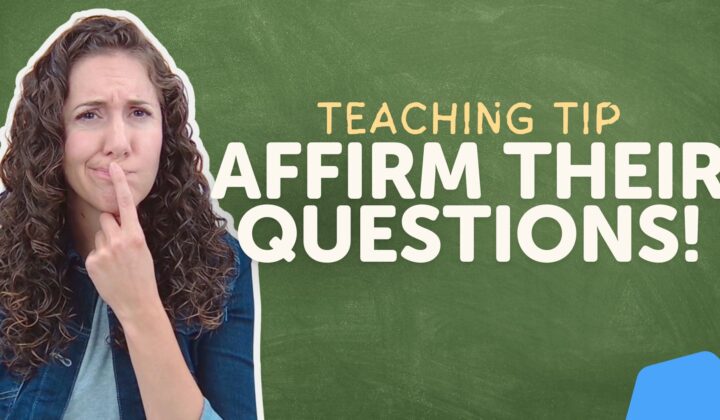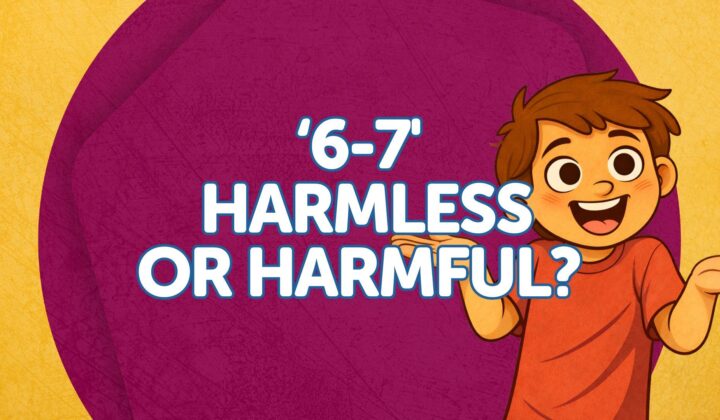Learn more about the journey that led to us equipping kids to carefully evaluate every idea they encounter.
Meet members of our team who have contributed to curriculum development.
Hear from real users of the Foundation Curriculum.
Learn what we believe about God, Jesus, Scripture, and more.
How to Talk About Frozen II with Your Kids
It’s been six years in the making, but Frozen II has finally hit the box office. This sequel is bound to captivate millions of children, rake in big bucks for Disney, and leave many Christian parents scratching their heads.
Like most Disney movies, Frozen II is a mixture of the good, the beautiful, and the untrue. So, what should Christians do? Ignore the film? This would be almost impossible. Embrace it with open arms? This would be unwise. Instead, let’s use this movie as an opportunity to get our kids thinking deeply about truth. Here are five conversations we can have with our kids to help them carefully evaluate Frozen II.
1. What Is the Nature of God?
From its opening scene, the forest spirits of air, water, fire, and earth permeate Frozen II. These spirits call Elsa, and she follows them. She is even admonished by a local tribal leader to trust only nature and listen when it speaks. This animistic spirituality will cause many Christian parents to pause and wonder if they should have spent $11.50 a ticket. However, this spiritual element provides an excellent opportunity to talk with our children about the nature of God.
Like the Christian worldview, Frozen teaches that reality is dualistic, made up of both the physical and spiritual. However, Frozen’s depiction of the spiritual realm differs significantly from what Scripture presents. Open the discussion by asking your children what different elements in the movie had spirits. Point out how these spirits are all part of nature. Read Colossians 1:15-20, and ask your children what these verses teach us about God. Be sure to point out that God is the creator of all. He is near His creation (immanent), but He is not part of it (transcendent). Unlike the spirituality present in Frozen II, God is not in air, water, fire, or earth. He created these elements, and He sustains them. But He is not in them.
2. How Do We Determine Right from Wrong?
One of the main themes in Frozen II is entering “Into the Unknown.” Anna, Elsa, Kristoff, and Olaf all face anxiety over not knowing what is to come. However, they resolve always to do “The Next Right Thing.” This determination is a far cry from Disney’s typical “follow your heart” anthem. And it is a message we should eagerly discuss with our children.
To open the conversation, ask your children what Anna and Elsa did when they were unsure of the future. Ask your children what they think of this resolve to do the next right thing. Point out that we can never know what the future holds. But, rather than worry about this, we can choose to do good right where we are. Use this as an opportunity to discuss how we know what is right. Do we follow our hearts? Will our hearts ever lead us astray? Is there some standard outside of us that shows us what is right and what is wrong? Discuss how our feelings are not an infallible guide for right and wrong. There is a standard outside of ourselves to which everyone is accountable. (For more information on getting your children to critically think through objective morality, check out Unit 5 of Foundation.)
3. Is Seeking Truth Important?
Throughout the film, Elsa is on a quest to discover truth. And she doesn’t let anything stop her, not magical barriers, or fire-breathing lizards, or stormy seas, or raging ice-stallions. She is determined to seek truth. The truth she discovers is painful. At first, it leads to destruction and death. But, ultimately, it brings about hope and healing.
Ask your children if they agree with Elsa that truth is of the utmost importance. Remind them that the truth Elsa discovered was painful. Then ask if it would have been better if she saved herself from pain and didn’t learn the truth. Point out that knowing the truth was the only way to save herself and others. Connect this with our lives. If we do not know the truth or follow the truth, we will miss out on what is real. Read John 14:6 and John 18:37. Discuss how these passages claim that truth is of the utmost importance because God is the source of truth. Then ask your children, “Should truth be as important to Christians as it was to Elsa?”
4. Are We the Ones We’ve Been Waiting for?
Frozen II’s plot centers on Elsa and company journeying north to find a missing spirit that can unite the other four spirits. (SPOILER ALERT) When Elsa eventually reaches her destination, she is surprised to discover that she is the missing spirit. Her mother urges her, “Step into your power…You are the one you’ve been waiting for all your life.” With this message, Elsa realizes that she has within her all that she needs. And here we have Disney’s repackaged “follow your heart” theme.
Since this message is found in “Show Yourself,” you may want to have your kids listen to the song again, while looking at the printed lyrics. (It would be almost impossible to avoid the song in stores anyway.) Ask your children what they think of the queen’s claim. Are we the ones we’ve been waiting for? Do we have everything that we need inside of ourselves? Use this as an opportunity to point out your sin. Give specific examples of times you’ve blown it and ask your children to do the same. Then point them to the gospel. Discuss how the Bible teaches that we are all image-bearers of God (Genesis 1:26-27), but we have been affected by the fall (Romans 3:21-26). We cannot rescue ourselves (Romans 5:6-8). We are not the ones we’ve been waiting for. Jesus is.
5. Is Love Permanent?
Throughout the movie, Olaf, the lovable snowman, is saddened by the fact that “nothing is permanent.” Everything around him is changing, and he longs for something that endures. Toward the end of the movie, Olaf discovers that there is something permanent - love. This theme is echoed in Anna's unwavering determination to protect her sister and in Kristoff’s declaration that his "love is not fragile,” after Anna abandons him. This theme provides an excellent opportunity to discuss the nature of love with our children.
Open the conversation by asking your children if they agree with Olaf that love is permanent. If they disagree, ask them why. Use this as an opportunity to discuss the difference between love and infatuation. Our feelings for others will always fluctuate, that is the nature of emotions. However, true love, caring for another sacrificially, is much deeper than changing emotions. True love will not fade. Read 1 John 4:7-12 and discuss how love is not merely an act of God; it is an attribute. God is love. Because God is unchanging and eternal, we can agree with Olaf that true love is permanent.
As is typical for Disney, Frozen II is a mixture of truth and error. Many Christians will be tempted to either ignore this cultural phenomenon or settle for using it as mere amusement. If we choose either option, we are missing a golden opportunity to get our kids critically thinking about truth. So, let’s not wait until they’re older, or leave them to get lost in the woods. Let's start the discussion today!

About Elizabeth Urbanowicz
Elizabeth Urbanowicz is a follower of Jesus who is passionate about equipping kids to understand the truth of the Christian worldview. Elizabeth holds a B.S. in Elementary Education from Gordon College, an M.S.Ed. in Education from Northern Illinois University, and an M.A. in Christian Apologetics from Biola University. Elizabeth spent the first decade of her professional career teaching elementary students at a Christian school. Elizabeth now works full time on developing comparative worldview and apologetics resources for children. Her goal is to prepare the next generation to be lifelong critical thinkers and, most importantly, lifelong disciples of Jesus.
Related Posts and insights

Affirm the Questions of the Children You Are Teaching
Affirm children’s questions to foster curiosity and lifelong learning. Discover a simple, biblical strategy for building a love of learning.

How Should Christians Respond to the "6 7" Trend? Helping Kids Think Biblically About Cultural Phrases
How should Christian parents handle the "six seven" trend? Learn to avoid the genetic fallacy and guide your kids to think biblically about cultural phrases.

How Do We Explain the Doctrine of Election to Kids?
How do you explain the doctrine of election to kids without causing fear? Discover how Scripture's promises bring peace and assurance to children's hearts.
